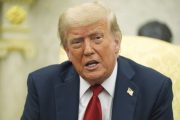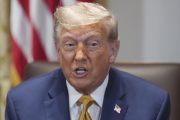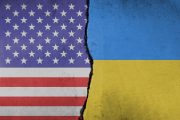“If George W. Bush is remembered by getting America stuck in Afghanistan and Iraq, it’s looking like Obama wants to be remembered as the president who got America stuck in Yemen.” These words, from a March Internet address by Anwar al-Awlaki, an American-born cleric and al-Qaeda leader now hiding in Yemen, sum up well the August 14 New York Times report in which they appear.
The report, entitled “Secret Assault on Terrorism Widens on Two Continents,” described in some detail the Obama administration’s continuation of Bush’s war on terrorism, with particular attention paid to the United States’ efforts in Yemen, where at least four airstrikes against suspected al-Qaeda operatives have occurred since December. Yet the campaign, said the Times, “began without notice … and has never been officially confirmed.” None of the strikes could be considered conclusive victories for the Americans.
The first strike, on December 17, hit a supposed al Qaeda training camp in Abyan Province. The initial report from the Yemeni government claimed that its air force had killed about 34 al-Qaeda fighters and that others had been captured elsewhere.
However, as time went on, “a very mixed picture emerged,” wrote the Times, adding:
The Yemeni press quickly identified the United States as responsible for the strike. Qaeda members seized on video of dead children and joined a protest rally a few days later, broadcast by Al Jazeera, in which a speaker shouldering an AK-47 rifle appealed to Yemeni counterterrorism troops.
“Soldiers, you should know we do not want to fight you,” the Qaeda operative, standing amid angry Yemenis, declared. “There is no problem between you and us. The problem is between us and America and its agents. Beware taking the side of America!”…
An inquiry by the Yemeni Parliament found that the strike had killed at least 41 members of two families living near the makeshift Qaeda camp. Three more civilians were killed and nine were wounded four days later when they stepped on unexploded munitions from the strike, the inquiry found.
A December 24 airstrike in a valley called Rafadh was first hailed by the Yemeni government as having killed “dozens of Qaeda operatives, including the leader of the Qaeda branch in Yemen, Nasser al-Wuhayshi, and his Saudi deputy, Said Ali al-Shihri,” the Times reported. “But officials later acknowledged that neither man was hit, and local witnesses say the missile killed five low-level Qaeda members.”
Although the next known strike, on March 14, succeeded in killing at least one al-Qaeda operative and possibly another militant, al-Qaeda retaliated on June 19 “with a lethal attack on a government security compound in Aden that left 11 people dead,” said the paper.
A May 25 strike in Marib Province killed, in addition to some al-Qaeda operatives, “the province’s deputy governor, a respected local leader who Yemeni officials said had been trying to talk Qaeda members into giving up their fight,” according to the Times. The incident, said the paper, “provoked a revenge attack on an oil pipeline by local tribesmen and produced a propaganda bonanza for Al Qaeda in the Arabian Peninsula. It also left [Yemeni] President [Ali Abdullah] Saleh privately furious about the death of the provincial official, Jabir al-Shabwani, and scrambling to prevent an anti-American backlash, according to Yemeni officials.”
All of this is to say that U.S. intervention in Yemen, as in other foreign countries, carries with it some very grave dangers. First is the fact that intelligence is always uncertain, and especially so in Yemen, where, officials told the Times, “there is a dearth of solid intelligence about Qaeda operations.” As a result, Washington is often forced “to depend on local proxies who may be unreliable or corrupt, or whose agendas differ from that of the United States.” The combination of these factors can lead either to simple mistakes or to outright manipulation of the Americans by locals for the purpose of carrying out their vendettas.
The second danger is that these mistakes can lead to blowback, bringing to mind what the Times calls “the classic trade-off of the post-Sept. 11 era: Do the selective hits make the United States safer by eliminating terrorists? Or do they help the terrorist network frame its violence as a heroic religious struggle against American aggression, recruiting new operatives for the enemy?”
“Al Qaeda has worked tirelessly to exploit the strikes,” says the newspaper, and “the leadership of Al Qaeda in the Arabian Peninsula survives, [with] little sign the group is much weaker.” In fact, “attacks by Qaeda militants in Yemen have picked up again, with several deadly assaults on Yemeni army convoys in recent weeks. Al Qaeda’s Yemen branch has managed to put out its first English-language online magazine, Inspire, complete with bomb-making instructions,” according to the report.
The Obama administration is nevertheless pressing on with what the President’s top counterterrorism adviser, John O. Brennan, termed a “multigenerational” campaign against al-Qaeda and its affiliates.
The two main reasons for this “shadow war,” which Obama inherited from Bush and has since expanded despite his posturing as an anti-war candidate in his run for the White House, are public relations and power.
On the public-relations front, what the American people don’t know can’t hurt Obama. Big, expensive, front-page wars get a lot of attention from voters; clandestine operations do not.
Covert operations carried out by the military also vest a great deal of power in the executive branch. Pentagon spy missions “typically operate with even less transparency and Congressional oversight than traditional covert actions by the C.I.A.,” said the Times, which also noted that the CIA, in turn, is becoming a “paramilitary organization as much as a spying agency” under Obama.
The question, then, wrote the Times, is:
Who should be running the shadow war? White House officials are debating whether the C.I.A. should take over the Yemen campaign as a “covert action,” which would allow the United States to carry out operations even without the approval of Yemen’s government. By law, covert action programs require presidential authorization and formal notification to the Congressional intelligence committees. No such requirements apply to the military’s so-called Special Access Programs, like the Yemen strikes.
It’s not difficult to see why Obama would prefer to keep the operations with the Defense Department, though bringing them under the CIA would allow him to eliminate the middleman (the Yemeni government) in Yemen.
Whether or not one believes such intelligence programs are constitutional, it is plain that one of the other prongs of the administration’s approach is most definitely not constitutional: “sharply increasing the foreign aid budget for Yemen and offering money and advice to address the country’s crippling problems,” as the Times describes it.
The paper reports that administration officials also “emphasized that the core of the American effort was not the strikes but training for elite Yemeni units, providing equipment and sharing intelligence to support Yemeni sweeps against Al Qaeda.” Having seen how well this approach has worked in Iraq and Afghanistan, it is hard to believe that anyone would want to try it again in Yemen. Perhaps Obama believes the third time’s a charm.
Obama’s shadow war is not limited to Yemen, as the title of the Times report indicates. It includes, said the newspaper, “roughly a dozen countries — from the deserts of North Africa, to the mountains of Pakistan, to former Soviet republics crippled by ethnic and religious strife — [where] the United States has significantly increased military and intelligence operations, pursuing the enemy using robotic drones and commando teams, paying contractors to spy and training local operatives to chase terrorists.”
This highlights the major difficulty of a “war on terrorism”: Terrorism is a tactic, carried out by small bands of individuals in widely dispersed locations. Al-Qaeda does not have a home base or a central committee for the United States to capture and then declare victory over the organization. Capturing or killing an al-Qaeda operative here and there will not put an end to the group’s threat. The war, after all, started out in Afghanistan and now encompasses a dozen or more countries on two continents. The more terrorists Washington kills, the more there seem to be — and the more spread out they seem to be.
Terrorism has existed for centuries and will always exist on this Earth. Its cost-benefit ratio for its practitioners is too attractive for them to give it up.
At the same time, the U.S. government could take some simple steps to inhibit terrorists’ ability to recruit others to their cause. First is to bring all the troops home and close down all foreign military bases. Second is to ensure that whatever operations it does undertake in foreign countries are done with the cooperation of local authorities and populations to the greatest extent possible. Third is to otherwise mind its own business; the most effective recruitment tool for al-Qaeda is Washington’s propping up of dictators in Muslim countries and its killing of innocent civilians, especially women and children.
All these things would have the effect of making Americans safer and of significantly reducing the size of the federal government, in turn making us also freer and more prosperous. The alternative is Obama’s “multigenerational” war that increases the opportunities for blowback, arrogates more power to the Presidency, and costs Americans dearly in blood, treasure, and liberty.
Photo: AP Images
Related article:




